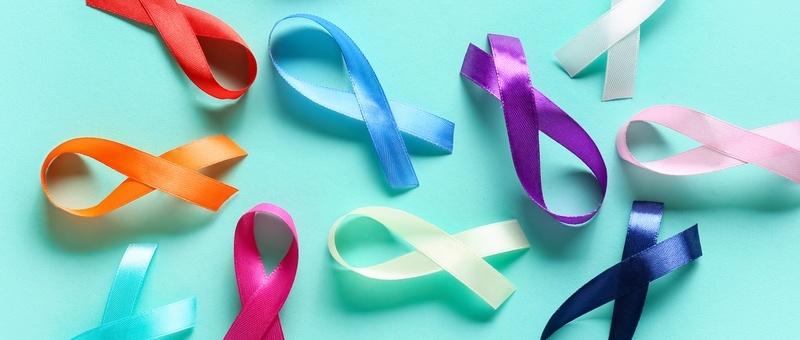
What not to say to someone with cancer
Peer reviewed by Dr Sarah Jarvis MBE, FRCGPLast updated by Gillian HarveyLast updated 2 Feb 2018
Meets Patient’s editorial guidelines
- DownloadDownload
- Share
- Language
- Discussion
When a family member or friend is diagnosed with cancer, it can be hard to know what to say. Do we talk about the diagnosis? Or is it better to provide distraction during a difficult time? Whilst every cancer journey is as individual as the person affected, we speak to the experts about the best way to offer support.
In this article:
Continue reading below
Be realistic
When a friend or loved one is suffering, it's natural to want to offer reassurance. But, telling someone they'll be fine when the future is uncertain may only make them feel more alone. Instead, allowing someone to talk about their difficulties and fears can provide a much-needed outlet.
"I have friends that have a great knack of just listening when I have a moan about the collateral damage of treatment or my fears about recurrence. They don't tell me it will be fine or that I have a lot to be grateful for, they just agree that having cancer sucks," agrees ex breast-cancer patient Sarah Coombes, who blogs for charity Flat Friends.
It's also important to ensure that we don't play down their fears and concerns: "If they're scared, don't tell them not to be scared. People have to have space to feel what it is they're feeling," explains Angela Keane, humanistic counsellor and member of Counselling Directory.
"Sometimes it's worth saying: 'I'm finding it difficult you've got cancer because I love you'," adds Laura Lee, CEO of charity Maggie's Centres, which provides practical support for all people with a cancer diagnosis and their families and friends. "When we talk about the impact on us and our own vulnerabilities, it helps the person to realise they are not alone."
Be present
Back to contentsSadly, many patients find that some friends distance themselves during their cancer treatment, often because of their own fears.
"You often find that some friends are too scared; they don't know what to say, or how to support someone with cancer. Therefore, they distance themselves from the person with cancer. I think that's the hardest thing for patients to understand," explains Ann Rhys assistant director of care at Hospiscare. "Usually, patients don't have any expectations, they just want people to be there for them."
Keane agrees that often just being present can be the most helpful thing. "It's important to remember that it's the person you're dealing with, not the cancer," she says. "When anything happens to a friend, the most important thing is your availability to be with them wherever they are."
Continue reading below
Be practical
Back to contentsAs well as being able to provide emotional support, offering practical help to someone with cancer can be invaluable.
"In the early stages, patients may not know what they need, but offering practical support can be very helpful," explains Keane, "and feel brave enough to keep asking as their needs will change."
According to Lee, it can also be helpful to follow up on any offer of help with something tangible. "For example, offer to bring round some soup," she explains. "Often people offer to help, but don't follow it up. Make sure they know it's a real offer."
Offering to accompany patients to their appointments can also be helpful. "Sometimes people say no when they don't want to be a burden; but there are other individuals who really would rather go alone. So, make sure you find out," advises Philippa Dooher, specialist cancer nurse at The London Clinic. "If you do attend an appointment, take notes and ask questions, but make sure you don’t dominate the appointment, as this can prove quite a negative experience."
It's also helpful to find out the times when they are more likely to need support. "It's good to really know when the peak side-effects will happen as with chemotherapy," agrees Dooher. "Also, finding out about the expected side-effects will mean you can provide reassurance in the moment and give proper support."
Be normal
Back to contentsWhilst they may be struggling with a serious illness, a cancer patient will still be the same person you know and love. They won't want to talk about their treatment non-stop, so helping them to keep life as normal as possible can be helpful too.
"I had a couple of friends who made a point of taking me out for coffee or lunch on week three of my chemo cycle when I was feeling at my best. They didn't wait to hear from me, so it took no energy on my part," agrees Coombes.
And don't be afraid to talk about yourself. "Some patients get tired of people not telling them about their own lives - it can feel very one-sided. Try to normalise as well. Don't always talk about the cancer or treatment; they want to carry on with your normal relationship too," explains Keane.
"It's important not to avoid the issue but find a way of acting openly and show that you are available to talk; if the person starts to talk then you can continue their conversation, and if they don't you can move on," explains Lee.
Continue reading below
Be a friend, not a doctor
Back to contentsNo matter how much you may want to help, it's important not to interfere with treatment or offer medical advice, unless this is specifically invited.
"Whilst the urge to offer advice comes from a good place it's speaking to your own anxiety not to the person that's with you," explains Keane. "Don't draw on your own experience, whether it's you who've had cancer or someone you know. This can block out the other person so unless you’re invited to share, don't. Cancer is a very individual experience; it doesn't matter what happened to someone else."
"People can then feel that they're being analysed and processed, and that people are interested in the cancer rather than them. It's important to be personal and ask: "How are you coping with the side-effects?" rather than "What is the treatment?" agrees Lee.
Be in it for the long run
Back to contentsFinally, when the treatment's over, though you and your friend may heave a sigh of relief, it's important to remember that the experience of having cancer lasts long after the treatment has stopped.
"The post-treatment period can be really difficult. A lot of people feel out on their own. They've confronted all of the stuff that they didn't have the space to when they were going through treatment," explains Keane.
"Cancer does change people - it can be a profound change, sometimes a good change, but it's also like a bereavement: they've lost something indefinable. That can fly in the face of the idea of beating it - it might not feel like that. They might feel trampled by it and worn out and fearful."
What not to say
Back to contentsThere are many words and phrases we use when referring to cancer, but have you really thought about their impact?
"Try not to say 'I understand how you feel' - everybody experiences cancer in different ways," explains Rhys.
"I don't like any of the battle cries that have become synonymous with discussing someone who has or had cancer - eg, a fighter, lost their battle. Cancer is cured/managed if the treatment works, not if the person with it is 'strong' enough," adds Coombes.
Workshop participants at Maggie's Centres recently came up with a list of words to avoid, these included: battle, terminal, heroic, victim, big C and incurable.
Patient picks for Information about cancer

Cancer
Cancer symptoms you should never ignore
When it comes to unexplained medical symptoms, it's easy to bury your head in the sand and ignore them, especially if they're a bit embarrassing to discuss. But getting them checked out by a doctor could end up saving your life. Here are the cancer symptoms you should never ignore.
by Lynn Stephen

Cancer
How to cope with anxiety after cancer
With intensive and often lengthy treatment, it's hardly surprising that many of those diagnosed with cancer find the illness can dominate their lives. However, as going through cancer can be both life-changing and traumatic, many patients find that rather than the relief they expected to feel post-treatment, they are left feeling anxious.
by Gillian Harvey
Continue reading below
Article history
The information on this page is peer reviewed by qualified clinicians.
2 Feb 2018 | Latest version

Ask, share, connect.
Browse discussions, ask questions, and share experiences across hundreds of health topics.

Feeling unwell?
Assess your symptoms online for free
Sign up to the Patient newsletter
Your weekly dose of clear, trustworthy health advice - written to help you feel informed, confident and in control.
By subscribing you accept our Privacy Policy. You can unsubscribe at any time. We never sell your data.